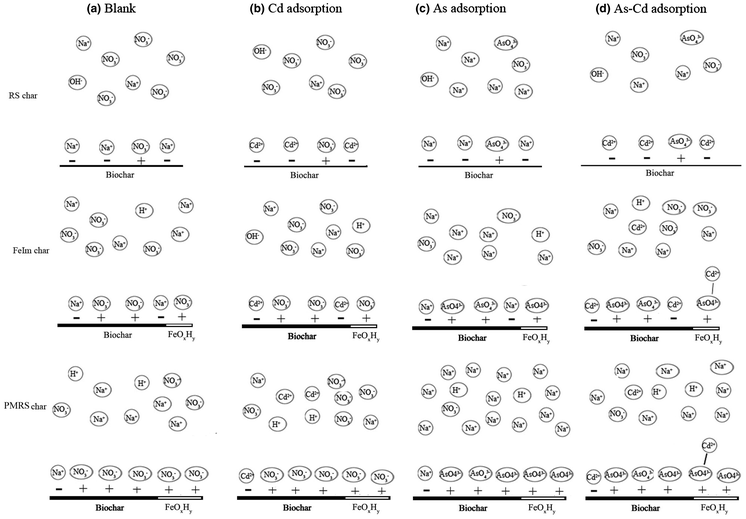

Arsenic-containing water poses a serious threat to human health. In this study, two types of Fe-modified rice straw biochars [(Fe-impregnated biochar (FeIm char) and pre-modified rice straw biochar (PMRS char)] were prepared, in which three ratios [1, 5, and 10% (w/w)] of Fe modification were evaluated, resulting in six different Fe-modified biochars. Then, a series of adsorption experiments, using single- and binary-metal solutions of As(V) and Cd(II), were conducted to investigate the performances of modified biochars on metal adsorption compared to pristine rice straw biochar (RS char). Results indicated Fe modification improved the As(V) adsorption capacity of biochar. PMRS char showed higher adsorption of As(V) than FeIm char. At the 5% Fe modification ratio (FMR), the As(V) removal by PMRS char (at 10 g/L dosage) from 100 mg/L As(V) solution was approximately 69.6%, which was higher than 46.1% of FeIm char or 22.6% of RS char. In contrast, the adsorption of Cd(II) was decreased after modified at 5 or 10% FMR. Interestingly, for treating solution containing As(V) and Cd(II) together, the adsorption of As(V) onto FeIm char or PMRS char prepared at 5 or 10% FMR remained higher than that onto RS char, while the simultaneous removal of Cd(II) ion by either modified biochar was kept over 50%. Thus, the finding of this study suggested Fe-modified biochars, especially prepared via the pyrolysis of FeCl3 pre-soaking rice straw, could be a promising adsorbent for the remediation of complex As(V)-containing wastewater.
